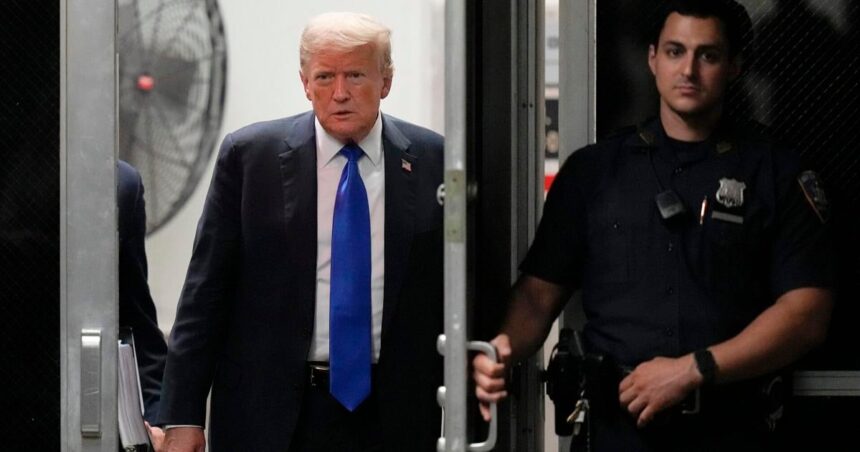On May 30, Donald J. Trump was found guilty on all 34 counts of falsifying records to conceal a sexual encounter with adult film actress Stormy Daniels before his 2016 presidential campaign. This conviction now places him among the millions of Americans with criminal records.
Throughout his political career, Trump’s stance on the criminal justice system has shifted. Despite championing “law and order” and signing executive orders to combat crime, gangs, and drugs, he later criticized the system as politically biased and corrupt when faced with his legal troubles.
Several currently and formerly incarcerated individuals provided their perspectives on Trump’s conviction and the fairness of the criminal justice system. They highlighted the disparities and issues within the system and how it impacts individuals differently based on their social status.
Ronnie Morgan
From his perspective as an incarcerated individual, Ronnie Morgan believes that Trump should experience prison firsthand to understand the flaws in the system and work towards fixing it.
Donnell Genyard
Genyard expresses concerns that Trump’s presidency could worsen the criminal justice system for victims of crime due to his focus on defendants rather than victims. He questions the fairness of Trump’s trial outcome compared to his own experiences with the system.
Darnell C. Butcher
Butcher reflects on the lack of fairness within the justice system and questions the necessity of imprisoning non-violent offenders like Trump. He emphasizes the need for reformation and changes within the system.
Leighton Johnson
Johnson points out the disparities in the treatment of Trump compared to a Black man within the criminal justice system. He expresses skepticism about any significant changes following Trump’s conviction.
Thad Bereday
Bereday discusses the mixed perceptions surrounding Trump’s trial and its implications on the criminal legal system. While acknowledging the systemic issues, he believes that accountability and reform are essential for justice.
Michael Shane Hale
Hale highlights the advantages Trump had during his trial due to his resources and legal representation. He points out the discrepancies in treatment based on social status within the legal system.
Anthony Arriaga
Arriaga views Trump’s conviction as a reflection of targeted prosecution and believes it may set a precedent for future cases involving politicians and justice system officials.
Joseph Wilson
Wilson emphasizes the importance of accountability and reform within the adversarial justice system. He advocates for a more constructive approach to dealing with legal matters beyond punishment.
Jason Mccrickard
Mccrickard discusses the divisive impact of Trump’s conviction on the American public and predicts unrest regardless of the election outcome. He suggests a sentence for Trump that includes probation and emphasizes the growing division within the country.
These diverse perspectives shed light on the complexities of the criminal justice system and its impact on individuals from different backgrounds and social statuses. The discussion around Trump’s conviction serves as a catalyst for wider conversations about fairness, accountability, and reform within the legal system.
Source: The Marshall Project
This content was reviewed and distributed by Stacker Media.





